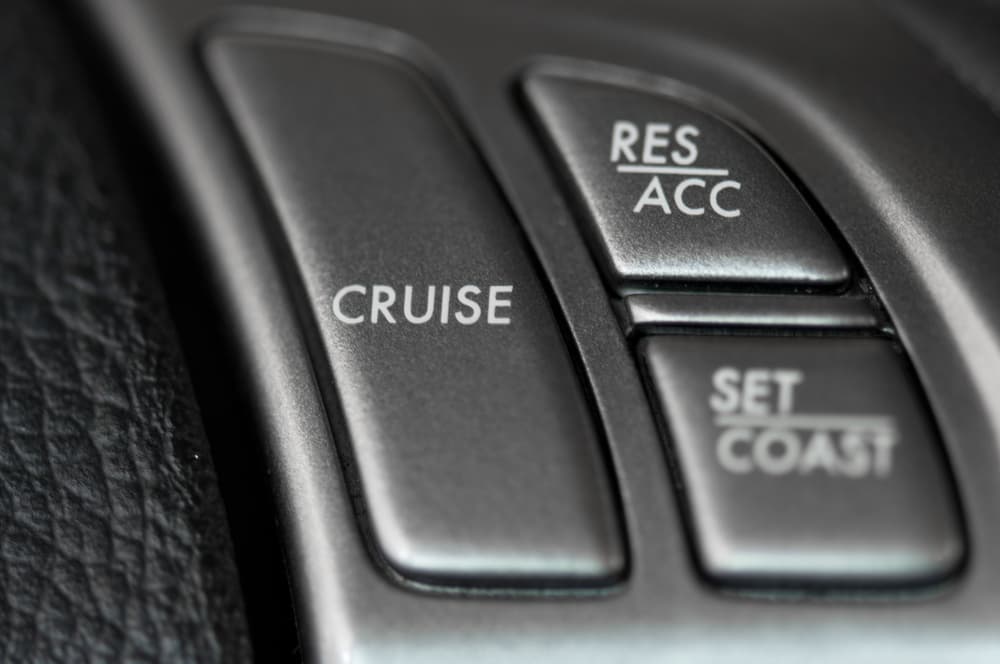What to Do If Cruise Control Causes a Car Accident
By Matthew Farr on October 21, 2022 | In Auto Accidents

Almost every new vehicle today comes with cruise control. While this feature can be convenient for drivers, especially on long road trips, this technology could also cause devastating accidents if it malfunctions or is misused.
What Is Cruise Control?
There are two types of cruise control: conventional cruise control and adaptive cruise control (ACC). Cruise control improves fuel efficiency by locking the vehicle at a constant speed and allowing the driver to take their foot off the accelerator while cruise control is engaged.
ACC is an upgraded version of cruise control. It uses modern sensor technologies such as cameras and lasers to detect nearby vehicles and objects, warn motorists about potential hazards, and adjust speed. ACC systems can also automatically apply brakes to avoid a collision.
How Cruise Control Can Cause Accidents in Maryland
Accidents involving cruise control could happen due to:
- Defective design or manufacturing – A faulty cruise control system could potentially lead to an accident. For example, if cruise control suddenly accelerates on its own or fails to disengage when the driver brakes, it could be due to a design or manufacturing flaw.
- Road conditions – Using cruise control on wet, icy, or otherwise hazardous roads can lead to hydroplaning and spinning out of control.
- User error or driver negligence – Driver error can also lead to cruise control accidents. When a motorist uses cruise control, it can be easy for them to get distracted or become fatigued. Even when a vehicle’s cruise control is engaged, motorists must pay attention to their surroundings and be prepared to react to potential hazards.
If you were injured in a car accident and believe cruise control might have played a role, you will need an experienced car accident lawyer’s help to determine the cause of the crash and which parties could be held liable.
When It Is Dangerous to Use Cruise Control
Depending on traffic, road conditions, terrain, and weather, it might not be safe to use cruise control. Using cruise control can be dangerous in the following situations, among others:
- Heavy traffic
- Wet roads
- Icy or snowy roads
- Roads with severe turns
- Mountainous or hilly roads
- When the driver is tired or distracted
The Hill recently reported that ACC systems might put motorists at a higher risk of being involved in an accident due to speeding. In the study cited by the publication, the subjects who used ACC exceeded the speed limit 95 percent of the time (unlike traditional cruise control, ACC systems take their cue from the leading car). Speeding while cruise control is engaged can be particularly dangerous if the driver is not focused on the road ahead or ready to respond to an emergency.
Liability for a Car Crash Involving Cruise Control
Multiple parties could potentially be at fault for an accident involving cruise control. In many cases, the driver would be liable. If the driver was drowsy or distracted while using cruise control and failed to react in time to avoid a collision, they should be held accountable for the harm they caused. They could also be liable if they used cruise control and traveled too fast in hazardous conditions.
The designer or manufacturer could be liable if a defect in the vehicle’s cruise control system caused the accident. The investigation would need to determine whether the system had an inherent design flaw or whether the defect occurred during manufacturing.
Contact a Maryland Car Accident Lawyer at Our Firm Today
Were you injured in a car accident through no fault of your own? Whether cruise control was a contributing factor, a Maryland car accident attorney at Cohen & Dwin, P.A. want to help you seek fair compensation for your medical bills, lost wages, pain, suffering, and more.
Contact us today for a free consultation.

At Cohen & Dwin, Mr. Farr’s practice focuses on the representation of Claimants before the Maryland Workers’ Compensation Commission, those injured by the negligence of others, and those accused of crimes in Baltimore in both the District and Circuit Courts of Maryland.
